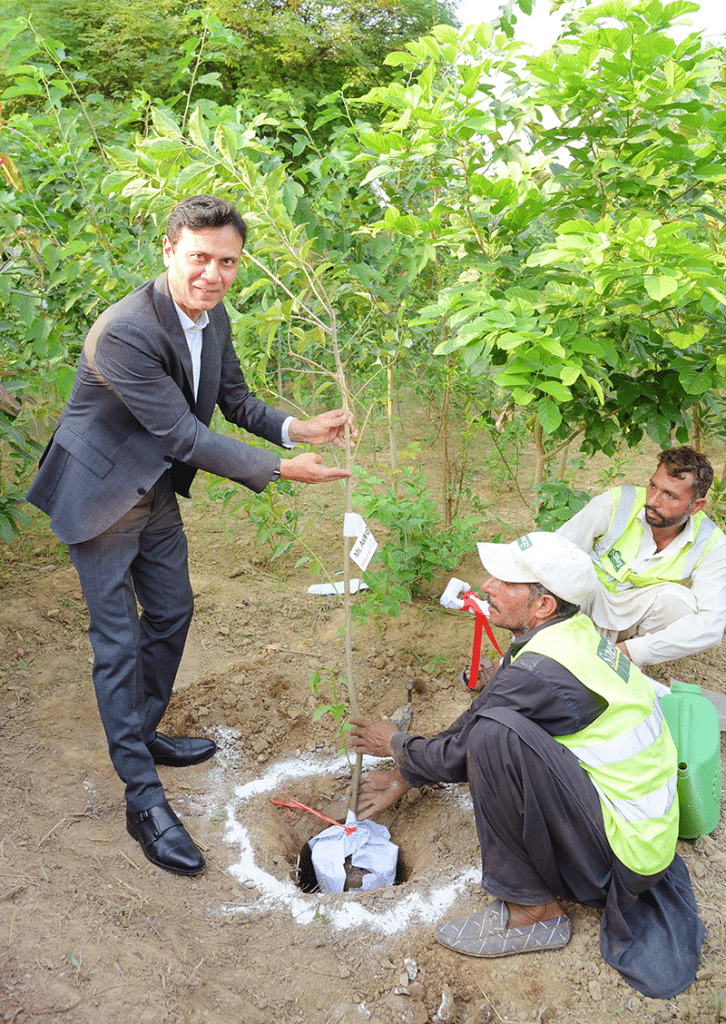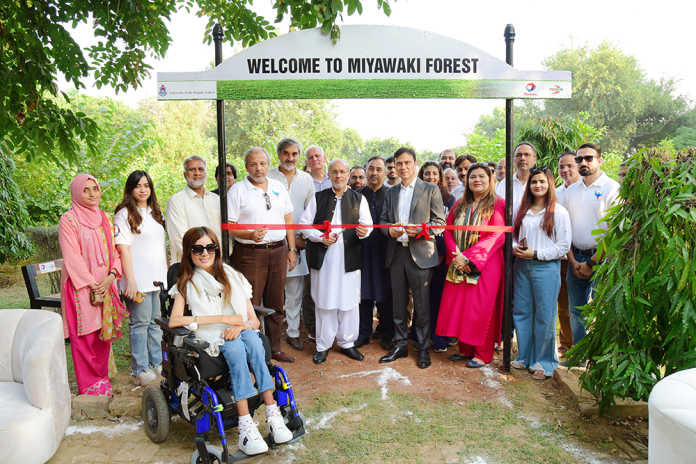Addressing climate change necessitates concerted efforts at both individual and organizational levels. Every action counts in reducing the carbon footprint and mitigating environmental degradation. Simple decisions like adopting energy-efficient equipment, neutralizing waste, and adopting renewable energy ultimately contribute to a more sustainable future. Understanding the environmental consequences of these decisions is critical.
Sustainable Development entails firms’ obligation to examine their influence on society and the environment. The Sustainable Development Goals (SDGs) of the United Nations are a worldwide roadmap for international development that emphasizes inclusion and equitable opportunity for all, as represented by the concept of “Leave No One Behind.” Pakistan, facing profound socioeconomic disparities, is engaged in SDG dialogues to accelerate progress. However, conducting meaningful dialogues in such an unequal society poses a challenge, often reproducing dominant narratives and power structures rather than encouraging genuine exchanges of ideas. In the context of the environment, this responsibility translates to sustainable practices and initiatives. Corporations are uniquely positioned to drive substantial change due to their scale and influence. Engaging in environmental initiatives is not just an ethical obligation but also a strategic advantage. Companies that embrace sustainability enhance their brand image, attract conscientious consumers, and contribute positively to the community.

Total PARCO, is one of the energy majors, has demonstrated a remarkable commitment to environmental sustainability as strategic imperative. This Miyawaki Forest , out of four planted over a short period of time, is notably their largest endeavour in this direction. The initiative involves creating a forest through the Miyawaki technique, a method known for its dense, native plantation, in the heart of Punjab University. Spanning an impressive 87,120 square feet, this forest houses around 12,000 indigenous plants within the botanical gardens of Punjab University.

The Forest at Punjab University is a microcosm of ecological brilliance. Housing a multitude of indigenous plant species, this urban forest is more than just an aesthetically pleasing green space. The forest serves as a potent carbon sink, absorbing a substantial 144 tons of carbon dioxide annually. In a world grappling with rising greenhouse gas emissions, such initiatives provide a glimmer of hope and set a benchmark for future endeavors. Previous efforts from Total PARCO involve seeing the Miyawaki Forest implemented at Jinnah Park, Gujranwala, Chandbagh School, Muridke and Government College University, Lahore.

One major challenge with the SDGs is that they are often seen as a top-down approach with governments, organizations, and corporations making SDG implementation decisions without necessarily involving the communities they are meant to benefit. This dilutes understanding and decreases buy-in from communities, resulting in implementation that does not suit local needs.

However, for Total PARCO, this is more than a local endeavour. The Miyawaki Forest initiative ties strongly with global sustainability goals. Specifically, it significantly contributes to two Sustainable Development Goals (SDGs): Climate Action (SDG #13) and Partnership for Goals (SDG #17). By absorbing substantial carbon dioxide and fostering partnerships with academic institutions, Total PARCO is making tangible strides towards a sustainable future.

The choice of indigenous plants in reforestation efforts is pivotal. Indigenous plants are naturally adapted to the local ecosystem, making them resilient and well-suited to thrive in their environment. This adaptation contributes to their accelerated growth and higher survival rates. Furthermore, these plants have an extraordinary potential for carbon dioxide absorption, making them an indispensable asset in the battle against climate change. Indigenous plants absorb 30 times more carbon dioxide than standard planting methods, demonstrating their effectiveness in preventing climate change.

In the face of the daunting climate crisis, actions such as Total PARCO’s Miyawaki Forest initiative illuminate a path toward a sustainable future. The significance of individual choices, the responsibility of corporations, and the undeniable impact of indigenous plantations are crucial aspects of this movement. Moving forward, a collective commitment to environmental well-being is not only a necessity but a moral obligation. Embracing sustainable choices, corporate environmental responsibility, and celebrating initiatives that propel society towards a more sustainable, green future stand as imperative actions.


